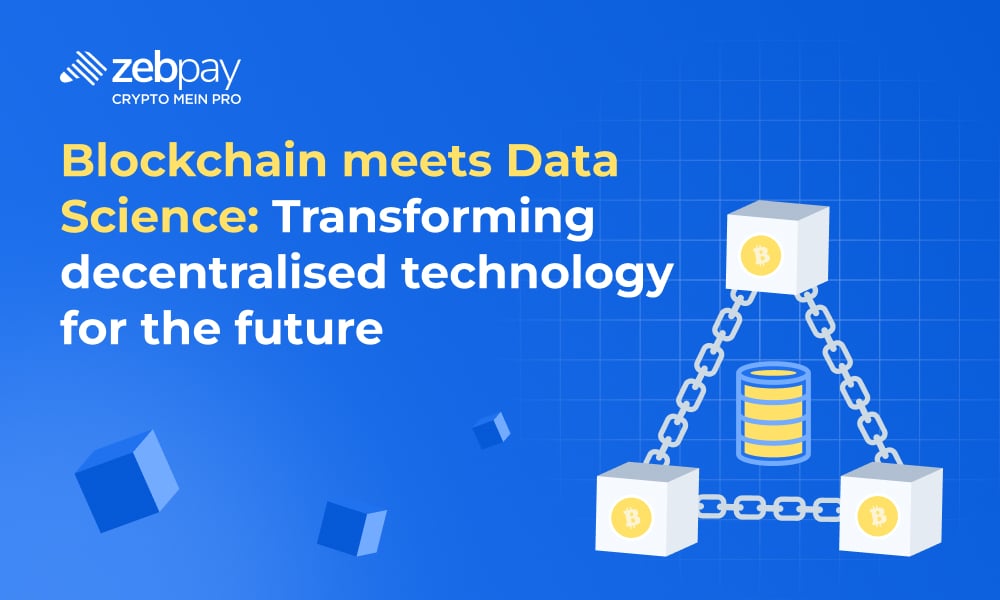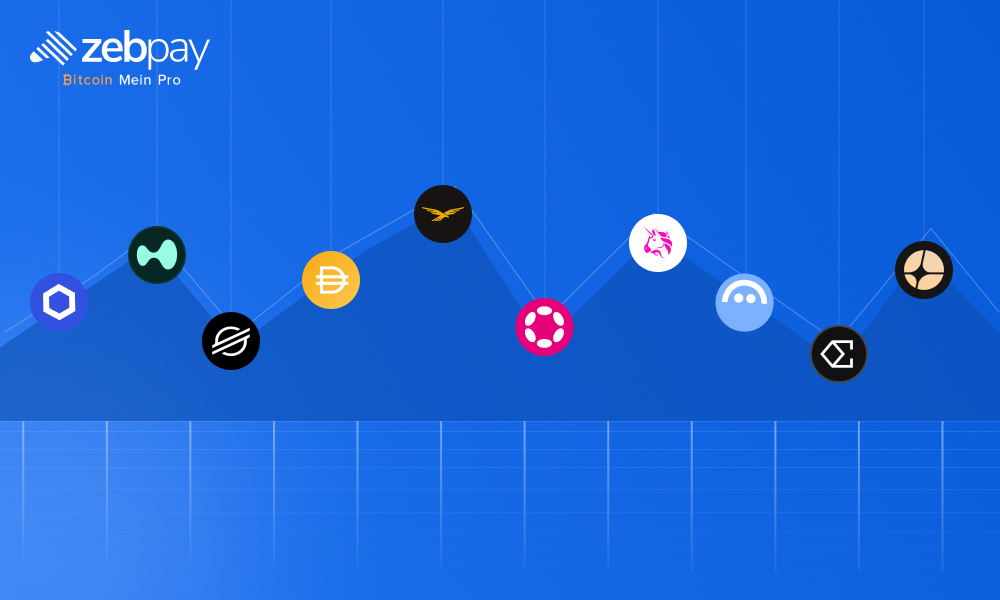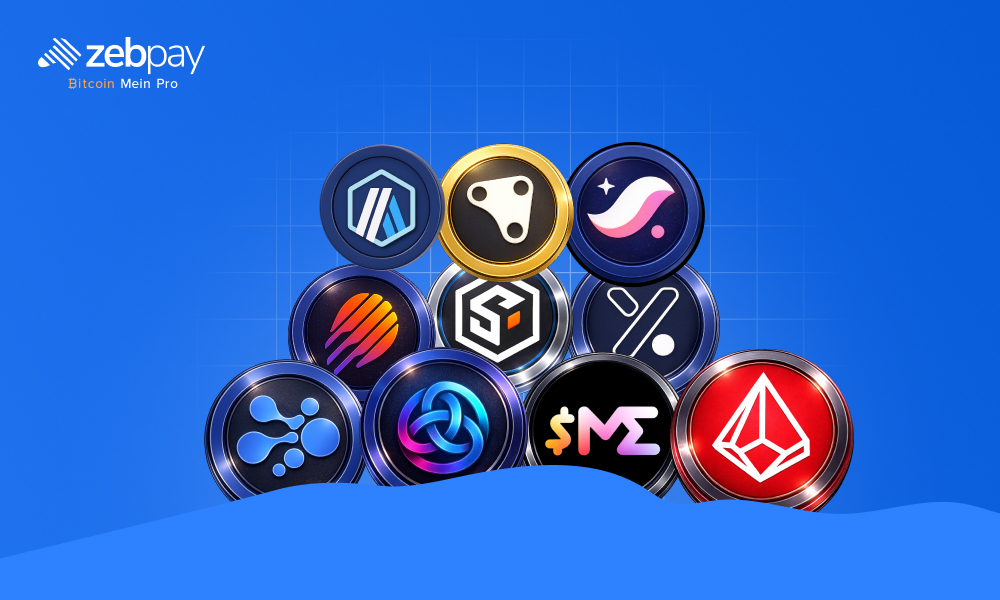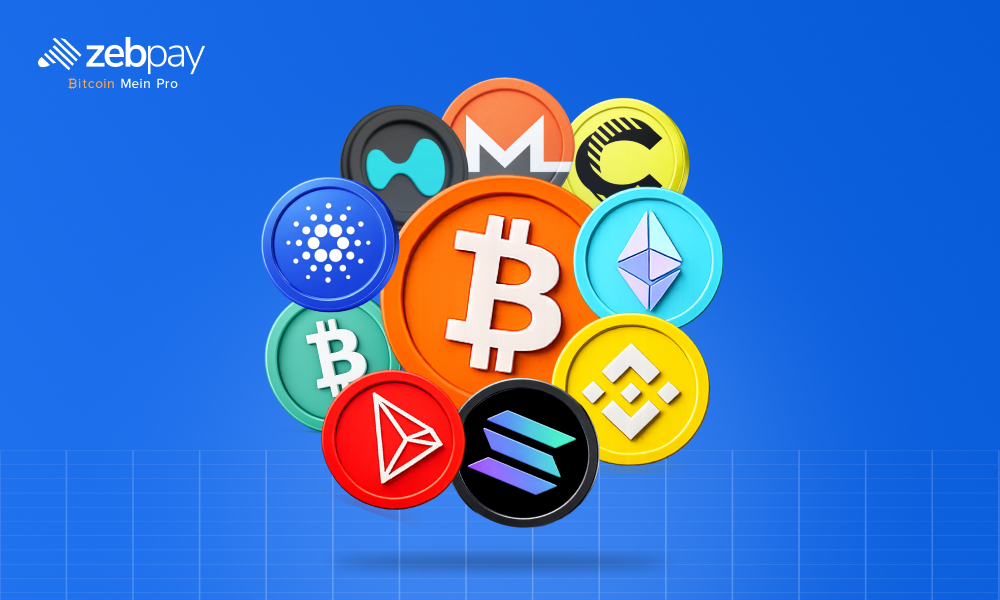In today’s rapidly evolving technological landscape, blockchain and data science have emerged as ‘game-changers’ across different fields. Blockchain supplies a decentralised ledger to ensure data protection, while data science scrutinises vast amounts of data to drive smarter decisions. Now, the question revolves around their potential when combined on a broader scale. Applications being created through the intersection of blockchain and data science are growing in importance for an increasingly data-driven world, presenting opportunities for the future of technological innovation.
Blockchain’s role in Data Security, Privacy, and Integrity
| Feature | Description |
| Decentralisation | Data is distributed across multiple nodes, which prevents control by a single entity. |
| Immutability | Contents of the data cannot be altered once it gets stored on the blockchain. |
| Cryptographic Security | Data transactions remain protected through cryptographic algorithms. |
| Transparency and Traceability | Blockchain ensures transparency by providing a history of transactions. |
| Data Privacy | Data control is present for users through encryption and private keys. |
| Protection against Tampering | Blockchain induced decentralisation and cryptography make transactions resistant to frauds. |
Blockchain-enhanced Data Science applications
Data monetisation:
Data ownership – Permits individuals to have to control and monetise their personal information using blockchain-oriented platforms.
Secure transactions – Facilitates secure and transparent transactions for buying and selling data.
Predictive analytics:
Data accuracy – Blockchain ensures the integrity and accuracy of data utilised for predictive paradigms, developing the reliability of forecasts.
Decentralised data sources – Integrates data from different decentralised sources for increased comprehensive analysis.
Smart contract automation:
Automated execution – Automatically executes data-driven contracts based on predetermined conditions, reducing manual review.
Data Integration – Uses blockchain to ensure that smart contracts are triggered by accurate and verifiable data inputs.
Data generation and validation:
Origin monitoring – Monitors the origin and changes of data over time, ensuring accuracy and validity.
Integrity checks – Ensures that data has not been altered during processing and storage.
Fraud detection and prevention:
Transaction verification – Uses blockchain’s immutable ledger to monitor and audit transactions, reducing opportunities for fraud.
Anomaly detection – Analyses blockchain data for unusual patterns that could indicate fraudulent activity.
Advantages and Disadvantages of Blockchain’s role in Data Science
| Advantages | Disadvantages |
| Facilitates easier compliance with regulatory requirements through an immutable and verifiable record of transactions. | Implementing and maintaining blockchain solutions can result in increased expenses, with regard to infrastructure, development, and energy consumption. |
| Permits transparent data transactions and audit trails, resulting in easier tracking and verification of data origins and changes. | Blockchain-oriented scalability issues can result in slower transaction processing times. |
| Removes centralised control through data storage across multiple nodes. | Erroneous data entries can remain present, indefinitely, impacting data analysis outcomes. |
| Ensures accuracy and consistency of data, over time, through an immutable ledger. | Compatibility issues between blockchain and data science can arise, complicating integration efforts. |
| Allows new models for data monetisation, which can securely sell or trade data. | Uncertainties concerning data ownership, compliance, and jurisdiction can pose risks and hinder adoption. |
Case Studies
IBM Food Trust:
Overview – IBM Food Trust uses blockchain to track the journey of food products, from farm to table.
Integration – Blockchain and data science are combined to analyse and visualise supply-chain data for creating immutable records.
Impact – Increases transparency, reduces food fraud, and improves the ability to rapidly address contamination issues.
Chainalysis:
Overview – Chainalysis provides blockchain analysis and related tools to detect and prevent financial crimes.
Integration – Uses blockchain data for forensic analysis, along with data science techniques to identify suspicious activity and patterns.
Impact – Improves the detection of money laundering and frauds, and increases the security and reliability of crypto transactions.
Ocean Protocol:
Overview – Ocean Protocol is a decentralised data marketplace that uses blockchain to facilitate data sharing and monetization.
Integration – Uses blockchain for secure data transactions and smart contracts, including data science to explore and analyse insights from shared data.
Impact – Enables safe and fair data exchange, increases data privacy, and provides incentives for data providers.
MediLedger Project:
Overview – The MediLedger Project emphasises on improving the security and efficiency of the medical supply chain via blockchain.
Integration – Integrates blockchain and data science to provide secure, tamper-proof records for scrutinising supply chain information.
Impact – Increases transparency, diminishes fraud, and betters compliance, resulting in increased data accuracy and integrity.
SelfKey:
Overview – SelfKey uses blockchain for decentralised identity management.
Integration – Leverages blockchain for secure identity storage and data science to analyse identity data and prevent fraud.
Impact – Increases privacy and control over personal data, simplifies the verification process, and reduces risks of identity theft.
Future Trends and Opportunities
| Prediction | Trend | Opportunity |
| Enhanced Data Privacy and Security | Rise is utilisation of privacy-preserving technologies. | Better mechanisms for improved sensitive data protection. |
| Decentralised Data Marketplaces | Growth of platforms to ensure data transactions using blockchain. | Development of new business models for data monetisation and democratisation. |
| AI and Machine Learning Integration | Combining blockchain with AI and machine learning to increase data integrity. | Development of decentralised AI models that leverage secure data sources. |
| Automated Smart Contracts | Increased usage for automation of complex data-driven processes. | Streamlined operations, reduced manual intervention, and less errors regarding contract execution. |
| Interoperability and Cross-Chain solutions | To enable seamless data exchange between different blockchain networks. | Increased flexibility and data integration across different blockchain networks. |
Conclusion
As we have explored, the combination of blockchain and data science represents a powerful frontier in technological innovation. Blockchain’s ability to deliver secure, transparent and immutable data is a solid foundation, while data science transforms this data into actionable insights and predictive models. Together, they address challenges such as data integrity, privacy, and productivity, delivering unprecedented solutions across industries. Looking ahead, the synergy between these technologies promises to drive further progress, starting from decentralised data marketplaces to enhanced AI paradigms. Embracing this integration can not only enhance how we manage and analyse data but can also shape the future of digital developments.
Unravel everything that you need for your crypto journey via ZebPay blogs. Get started today and join 6 million+ registered users on ZebPay!






